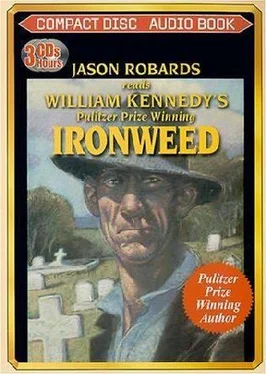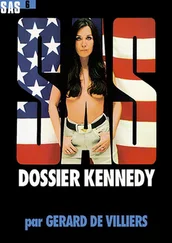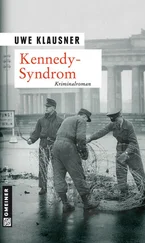William Kennedy - Ironweed
Здесь есть возможность читать онлайн «William Kennedy - Ironweed» весь текст электронной книги совершенно бесплатно (целиком полную версию без сокращений). В некоторых случаях можно слушать аудио, скачать через торрент в формате fb2 и присутствует краткое содержание. Жанр: Современная проза, на английском языке. Описание произведения, (предисловие) а так же отзывы посетителей доступны на портале библиотеки ЛибКат.
- Название:Ironweed
- Автор:
- Жанр:
- Год:неизвестен
- ISBN:нет данных
- Рейтинг книги:3 / 5. Голосов: 1
-
Избранное:Добавить в избранное
- Отзывы:
-
Ваша оценка:
- 60
- 1
- 2
- 3
- 4
- 5
Ironweed: краткое содержание, описание и аннотация
Предлагаем к чтению аннотацию, описание, краткое содержание или предисловие (зависит от того, что написал сам автор книги «Ironweed»). Если вы не нашли необходимую информацию о книге — напишите в комментариях, мы постараемся отыскать её.
Ironweed — читать онлайн бесплатно полную книгу (весь текст) целиком
Ниже представлен текст книги, разбитый по страницам. Система сохранения места последней прочитанной страницы, позволяет с удобством читать онлайн бесплатно книгу «Ironweed», без необходимости каждый раз заново искать на чём Вы остановились. Поставьте закладку, и сможете в любой момент перейти на страницу, на которой закончили чтение.
Интервал:
Закладка:
Ahead of them a policeman routed traffic into a U-turn and sent it back north. Rosskam cursed in a foreign language Francis didn’t recognize. But that Rosskam was cursing was unmistakable. As they turned toward Madison Avenue, both men’s faces were astream with stinging tears.
They were now pulling an empty wagon, fresh from dumping the day’s first load of junk back at Rosskam’s yard. Francis had lunched at the yard on an apple Rosskam gave him, and had changed into his new whiteon-white shirt, throwing his old blue relic onto Rosskam’s rag mountain. They had then set out on the day’s second run, heading for the deep South End of the city, until the fire turned them around at three o’clock.
Rosskam turned up Pearl Street and the wagon rolled along into North Albany, the smoke still rising into the heavens below and behind them. Rosskam called out his double-noted ragman’s dirge and caught the attention of a few cluttered housewives. From the backyard of an old house near Emmett Street, Francis hauled out a wheelless wheelbarrow with a rust hole through its bottom. As he heaved it upward into the wagon, the odor of fire still in his nostrils, he confronted Fiddler Quain, sitting on an upended metal chamber pot that had been shot full of holes by some backyard marksman.
The Fiddler, erstwhile motorman, now wearing a tan tweed suit, brown polka-dot bow tie, and sailor straw hat, smiled coherently at Francis for the first time since that day on Broadway in 1901 when they both ignited the kerosene-soaked sheets that trapped the strikebreaking trolley car.
When a soldier split the Fiddler’s skull with a rifle butt, the sympathetic mob spirited him away to safety before he could be arrested. But the blow left the man mindless for a dozen years, cared for by his spinster sister, Martha. Martyred herself by his wound, Martha paraded the Fiddler through the streets of North Albany, a heroic vegetable, so the neighbors could see the true consequences of the smartypants trolley strike.
Francis offered to be a bearer at the Fiddler’s funeral in 1913, but Martha rejected him; for she believed it was Francis’s firebrand style that had seduced the Fiddler into violence that fated morning. Your hands have done enough damage, she told Francis. You’ll not touch my brother’s coffin.
Pay her no mind, the Fiddler told Francis from his perch on the riddled pot. I don’t blame you for anything. Wasn’t I ten years your elder? Couldn’t I make up my own mind?
But then the Fiddler gave Francis a look that loosened a tide of bafflement, as he said solemnly: It’s those traitorous hands of yours you’ll have to forgive.
Francis brushed rust off his fingers and went behind the house for more dead metal. When he returned with an armload, the scab Harold Allen, wearing a black coat and a motorman’s cap, was sitting with the Fiddler, who had his boater in his lap now. When Francis looked at the pair of them, Harold Allen doffed his cap. Both men’s heads were laid open and bloody, but not bleeding, their unchanging wounds obviously healed over and as much a part of their aerial bodies as their eyes, which burned with an entropic passion common among murdered men.
Francis threw the old junk into the wagon and turned away. When he turned back to verify the images, two more men were sitting in the wheelless wheelbarrow. Francis could call neither of them by name, but he knew from the astonishment in the hollows of their eyes that they were the shopper and haberdasher, bystanders both, who had been killed by the soldiers’ random retaliatory fire after Francis opened Harold Allen’s skull with the smooth stone.
“I’m ready,” said Francis to Rosskam. “You ready?”
“What’s the big hurry-up?” Rosskam asked.
“Nothin’ else to haul. Shouldn’t we be movin’?”
“He’s impatient too, this bum,” Rosskam said, and he climbed aboard the wagon.
Francis, feeling the eyes of the four shades on him, gave them all the back of his neck as the wagon rolled north on Pearl Street, Annie’s street. Getting closer. He pulled up the collar of his coat against a new bite in the wind, the western sky graying with ominous clouds. It was almost three-thirty by the Nehi clock in the window of Elmer Rivenburgh’s grocery. First day of early winter. If it rains tonight and we’re outside, we freeze our ass once and for all.
He rubbed his hands together. Were they the enemies? How could a man’s hands betray him? They were full of scars, calluses, split fingernails, ill-healed bones broken on other men’s jaws, veins so bloated and blue they seemed on the verge of explosion. The hands were long-fingered, except where there was no finger, and now, with accreting age, the fingers had thickened, like the low-growing branches of a tree.
Traitors? How possible?
“You like your hands?” Francis asked Rosskam.
“ Like , you say? Do I like my hands?”
“Yeah. You like ‘em?”
Rosskam looked at his hands, looked at Francis, looked away.
“I mean it,” Francis said. “I got the idea that my hands do things on their own, you know what I mean?”
“Not yet,” said Rosskam.
“They don’t need me. They do what they goddamn please.”
“Ah ha,” said Rosskam. He looked again at his own gnarled hands and then again at Francis. “Nutsy,” he said, and slapped the horse’s rump with the reins. “Giddap,” he added, changing the subject.
Francis remembered Skippy Maguire’s left hand, that first summer away at Dayton. Skippy was Francis’s roommate, a pitcher: tall and lefty, a man who strutted when he walked; and on the mound he shaped up like a king of the hill. Why, when he wanted to, Skippy could strut standin’ still. But then his left hand split open, the fingers first and then the palm. He pampered the hand: greased it, sunned it, soaked it in Epsom salts and beer, but it wouldn’t heal. And when the team manager got impatient, Skippy ignored the splits and pitched ten minutes in a practice session, which turned the ball red and tore the fingers and the palm into a handful of bloody pulp. The manager told Skippy he was stupid and took him and his useless hand off the payroll.
That night Skippy cursed the manager, got drunker than usual, started a fire in the coal stove even though it was August, and when it was roaring, reached in and picked up a handful of flaming coal. And he showed that goddamn Judas of a hand a thing or two. The doc had to cut off three fingers to save it.
Well, Francis may be a little nutsy to people like Rosskam, but he wouldn’t do anything like Skippy did. Would he? He looked at his hands, connecting scars to memories. Rowdy Dick got the finger. The jagged scar behind the pinky… a violent thirst gave him that one, the night he punched out a liquor store window in Chinatown to get at a bottle of wine. In a fight on Eighth Avenue with a bum who wanted to screw Helen, Francis broke the first joint on his middle finger and it healed crookedly. And a wild man in Philadelphia out to steal Francis’s hat bit off the tip of the left thumb.
But Francis got ‘em. He avenged all scars, and he lived to remember every last one of them dickie birds too, most of ‘em probably dead now, by their own hand maybe. Or the hand of Francis?
Rowdy Dick.
Harold Allen.
The latter name suddenly acted as a magical key to history for Francis. He sensed for the first time in his life the workings of something other than conscious will within himself: insight into a pattern, an overview of all the violence in his history, of how many had died or been maimed by his hand, or had died, like that nameless pair of astonished shades, as an indirect result of his violent ways. He limped now, would always limp with the metal plate in his left leg, because a man stole a bottle of orange soda from him. He found the man, a runt, and retrieved the soda. But the runt hit him with an ax handle and splintered the bone. And what did Francis do? Well the runt was too little to hit, so Francis shoved his face into the dirt and bit a piece out of the back of his neck.
Читать дальшеИнтервал:
Закладка:
Похожие книги на «Ironweed»
Представляем Вашему вниманию похожие книги на «Ironweed» списком для выбора. Мы отобрали схожую по названию и смыслу литературу в надежде предоставить читателям больше вариантов отыскать новые, интересные, ещё непрочитанные произведения.
Обсуждение, отзывы о книге «Ironweed» и просто собственные мнения читателей. Оставьте ваши комментарии, напишите, что Вы думаете о произведении, его смысле или главных героях. Укажите что конкретно понравилось, а что нет, и почему Вы так считаете.












